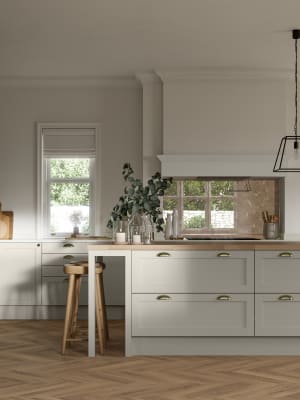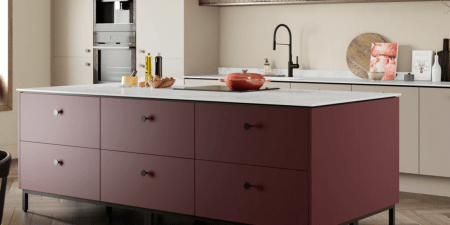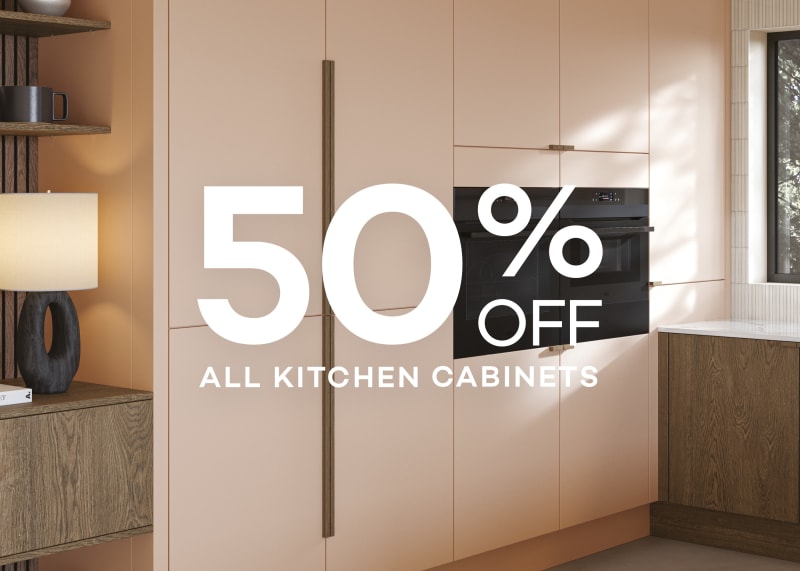Over 100 years
of design expertise

How to measure your kitchen
Designing your dream kitchen has to start somewhere, and measurements are the key.
Without passionate planning and exact dimensions, your kitchen renovation journey may never get off the ground. But luckily, Magnet is here to help. Below, you can find our easy-to-follow guide with clear instructions on how to measure your kitchen space. Jot these down and then meet with one of our expert designers to bring your fantasy kitchen to life.

Draw floor plan
Step one is to start with a floor plan. You don’t need to be Picasso to do this, or create an exact, to-scale drawing. Instead, the floor plan should be a bird’s eye view of the room that shows its rough shape. For this reason, you may find graph paper easier to use, as it has lines and squares already laid out on it.
Once you’ve drawn the shape of your room, it’s time to add some permanent fixtures that likely won’t change and that may affect how your new kitchen can be laid out. This should include windows and doors (both internal and external, such as patio doors) and the direction they open in, sockets, light switches and fixtures, gas pipes, water pipes, extractor fans, boilers, radiators and anything else of note (like an old serving hatch or underfloor heating, for example).
Sketch each wall
Your first drawing was a floor plan. Your second drawing (or drawings) will be of each wall, as if you were looking at them front on.
This plan should include everything you put into the first drawing, but also any existing cabinets and where there might be sloping ceilings. Eventually, you will take measurements that can be added to this drawing, such as the highest ceiling height and the lowest ceiling height, or the distance between the floor and the bottom of your windows.

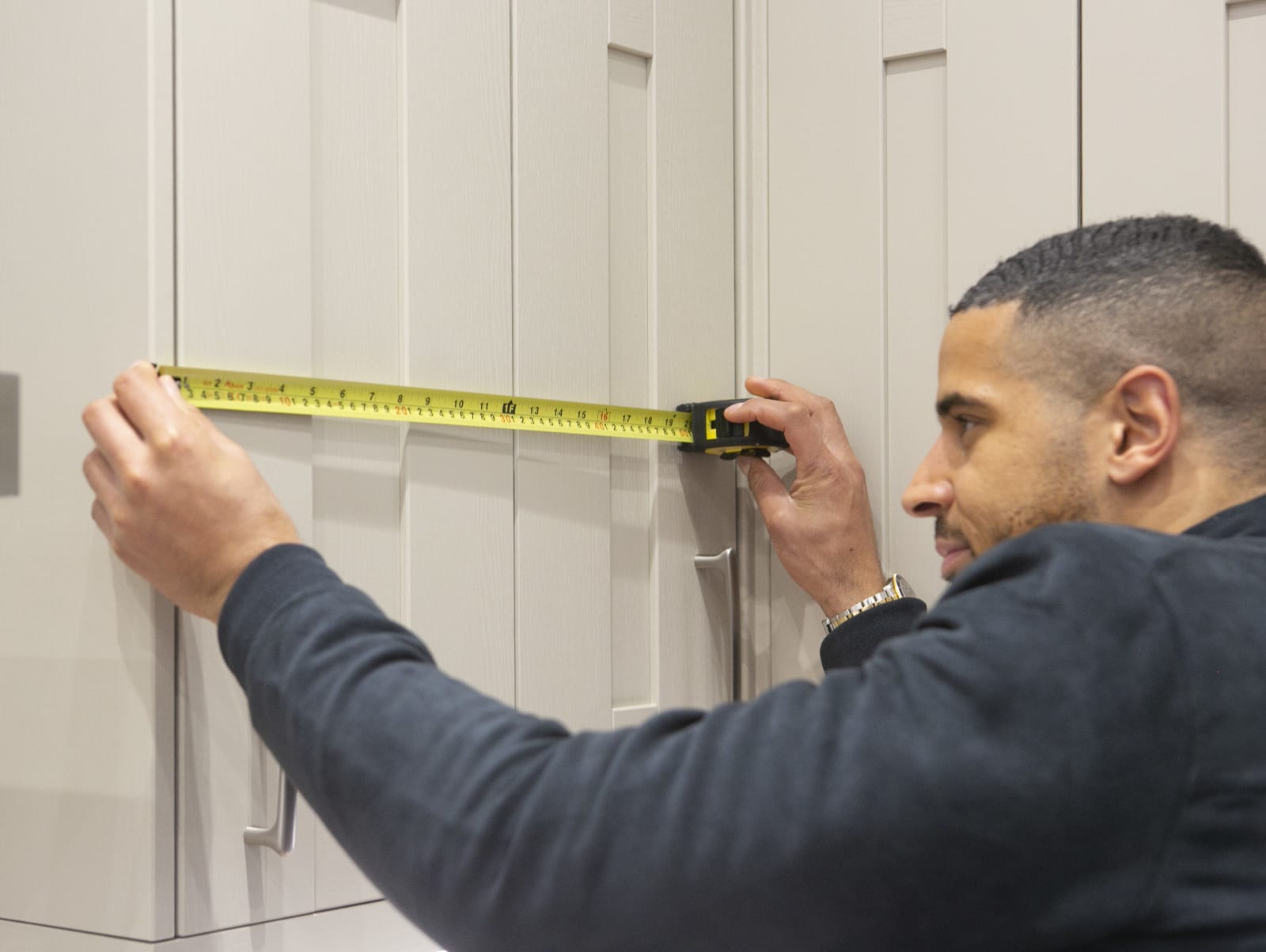
Start measuring
You might be thinking “I don’t know how to measure a kitchen”. But don’t worry; it’s easier than you might realise.
Go into your kitchen armed with a measuring tape and your rough sketches. What you’ll do now is simply take measurements and make a note of each one on your floor/wall plans as you go.
It’s best to start in a logical place so you don’t forget what you have and haven’t measured. We’d advise going around the room in a clockwise direction, beginning in one corner and working your way round to the right until you’re back where you started.
When it comes to measuring the walls, not only do you need the width and height, but also the distance between any permanent fittings, like windows. Therefore, be sure to measure the distance between the far right corner of the wall to the right side of the window, and the left corner of the wall to the left side of the window. You’ll also need figures for the distance between the floor and the bottom of the window and the top of the window and the ceiling.
Repeat this process for any doors and other fixed objects.
If you’re feeling a little unconfident when taking your measurements, remember that Magnet’s experts will confirm everything with a measuring visit after your design appointment so you don’t need to be correct to the nearest millimetre.
Take photos
While your measurements and sketches will certainly give a kitchen designer a good glimpse into your existing kitchen, photos can improve their perspective even further. We’d advise that you take some good quality photos of the room on a smartphone from multiple angles and of each wall.
If there are any aspects you’re unsure about or want to discuss specifically, then do take some closer photos of these areas.
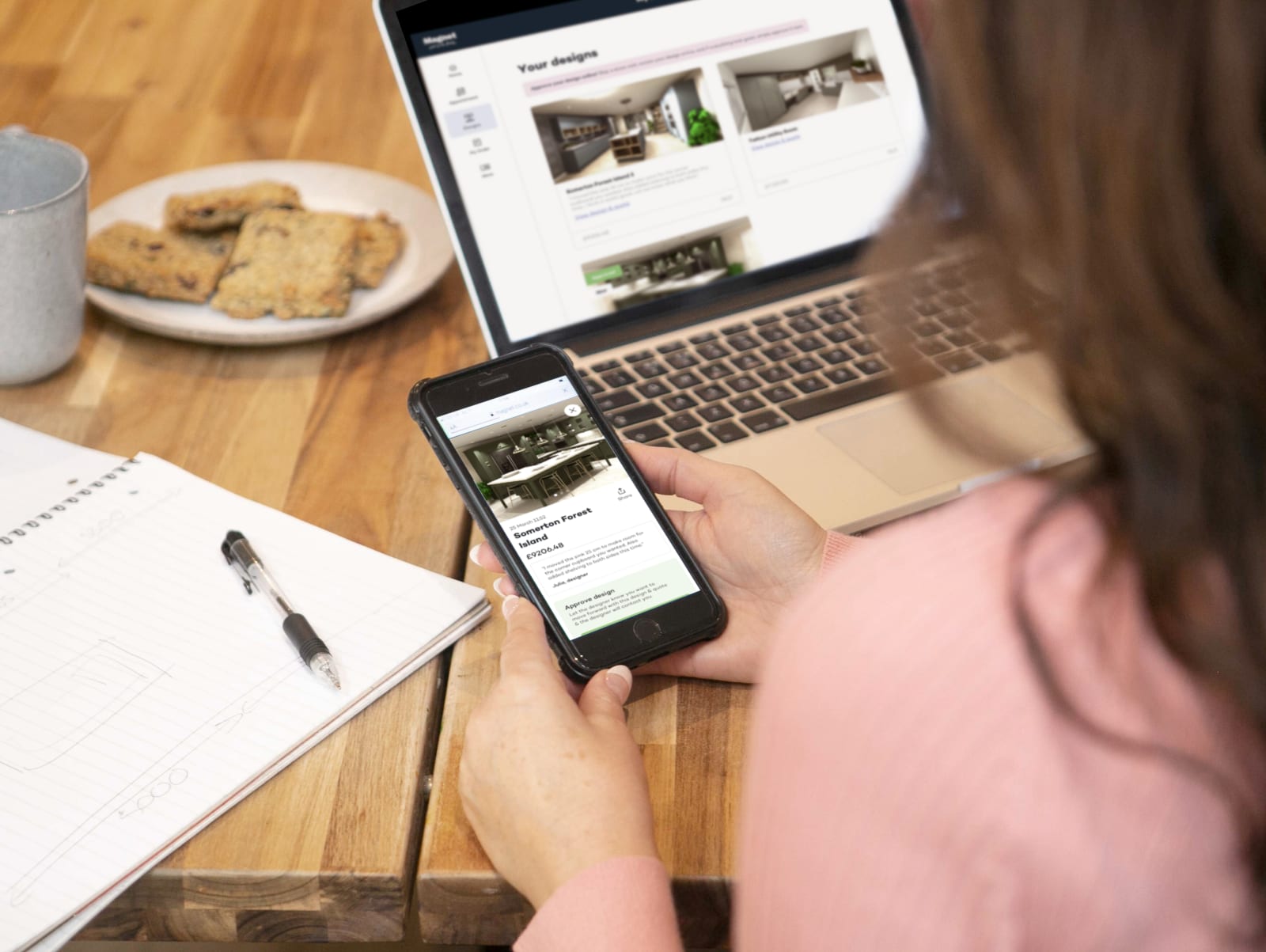
The Magnet difference
Inspiring better living through purposeful design.
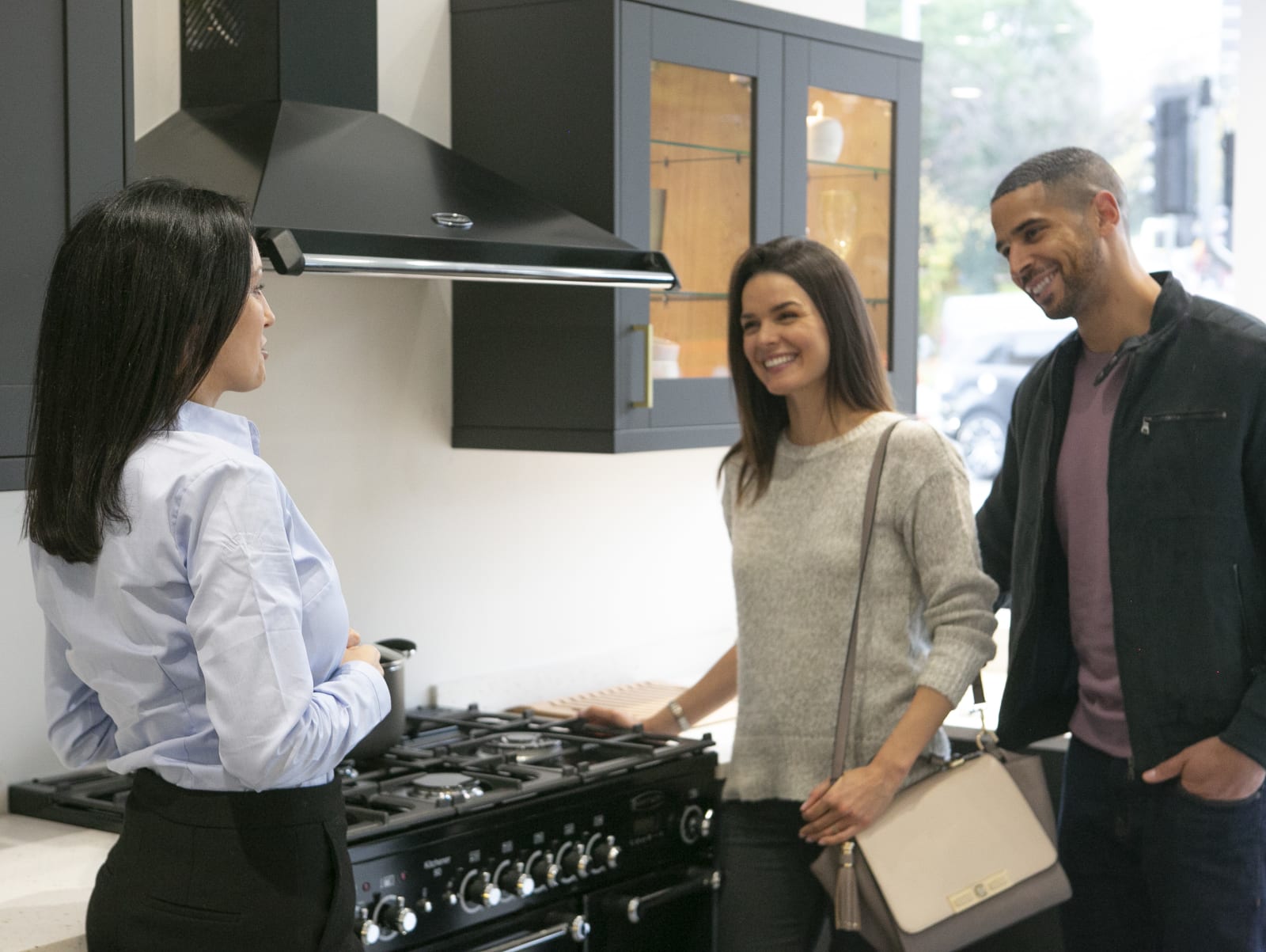
Book your kitchen design appointment
Once you have your plans, photos and measurements, you’re ready to book a design consultation with one of our experts. This part of the process can help you to settle on a design and will give you an idea of price too. It means your dream kitchen is almost within reach.
Prior to having your new kitchen installed, we also offer a free home survey service. A specialist Magnet designer will come to your home and remeasure everything to check your calculations were accurate and reduce the risk of error.





